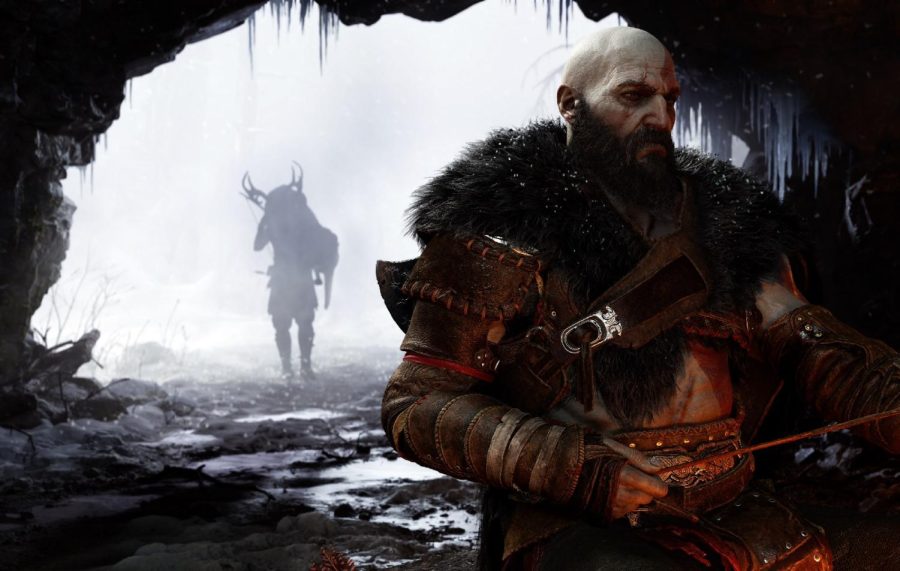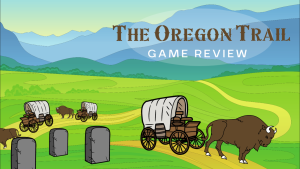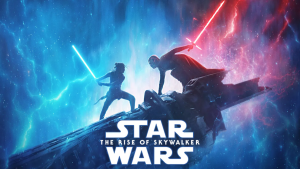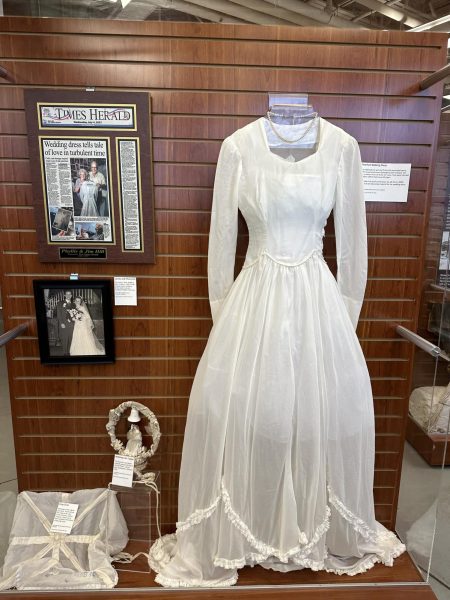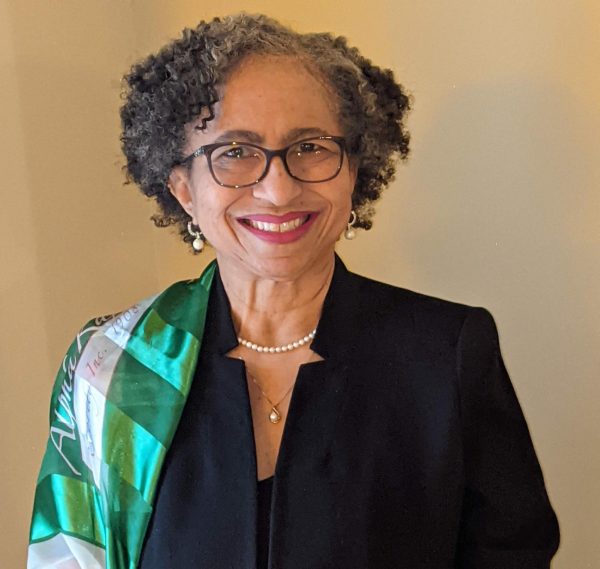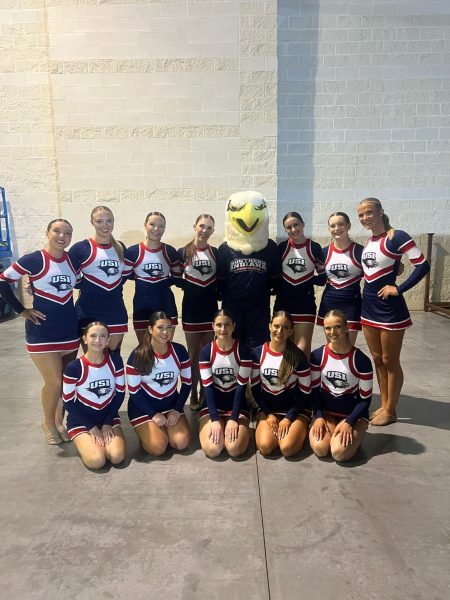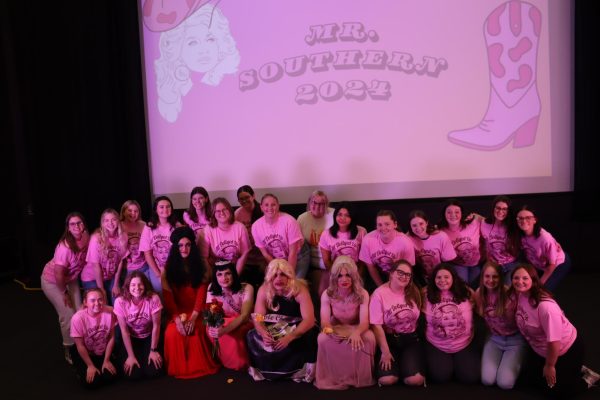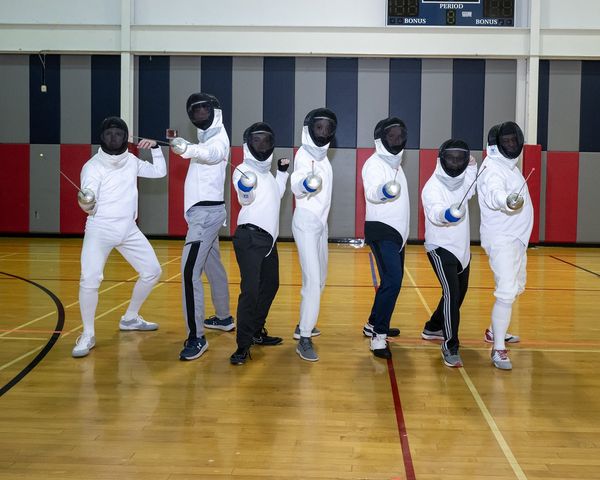God of War: Ragnarök is the next big step for video game blockbusters
Kratos, voiced by Christopher Judge, and his son, Atreus, voiced by Sunny Suljic, are the emotional core of “God of War: Ragnarök.” It is a father-son story that explores emotional maturity and growing up in a harsh world. (Photo courtesy of Sony Interactive Studios)
January 23, 2023
Even though “Elden Ring” took my spot for game of the year in 2022, “God of War: Ragnarök” was right up there as one of the best games released last year.
“God of War: Ragnarök,” released Nov. 9, 2022, is the sequel to “God of War,” released April 20, 2018. You play as Kratos, the Greek god of war who dismantled the Greek pantheon, as he comes to terms with his past. In “Ragnarök,” Fimbulwinter, the harsh winter that precedes Ragnarök, is well underway, and the end of the Nine Realms will soon follow. Kratos and his son, Atreus, must journey to each of the Nine Realms in search of answers as Asgardian forces prepare for Ragnarök.
“God of War: Ragnarök” had a lot to live up to. “God of War (2018)” was one of the best games released on the PlayStation 4. It had satisfying gameplay, excellent visuals and a heartfelt story with enthralling characters. “Ragnarök” also has to compete with all the impeccable fighting games that have been released since 2018, such as: “Sekiro: Shadows Die Twice,” “Devil May Cry 5,” “Hades” and “Elden Ring.”
“Ragnarök” took the game play and presentation of “God of War (2018)” and made it bigger and better while still telling an emotional story.
The game immediately hooks you in with one of the most action-packed openers to any video game I have ever played. You start out speeding through a forest as it collapses all around you. You get into a fight with a bear, and then you fight Thor, the Norse god of thunder. It is such a crazy way to open the game, but it effectively gets the player interested in the insane world of “God of War: Ragnarök.”
The opening also successfully introduces the player to the game’s combat mechanics. Everything “God of War (2018)” established is subtly improved to give the player more freedom. This is done by allowing more customization and interaction
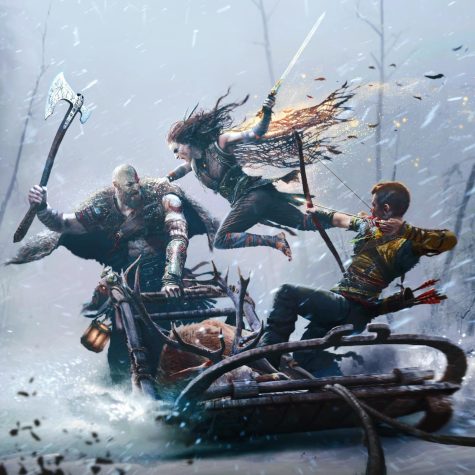
with the world,creating more options while fighting enemies. The vast amount of options the player has to approach each fight leaves room for not only entertaining battles, but ones that challenge the player as they slowly improve and get comfortable with their options.
One of the worst things about “God of War (2018)” was its reuse of enemies, from common to uncommon. “Ragnarök” improves on this by having a vast array of enemy types depending on the area and stage of the story the player is at. When I started “Ragnarök”, I expected to see more enemy types than there were in “God of War,” but I was blown away by just how many different enemies and fights there were. This game is huge in content and length.
If I were to nitpick the gameplay, its climbing and traversal mechanics are a tedious slog. In other PlayStation games, such as “Spiderman (2019),” the movement mechanics are as fun as the combat, if not more so. “God of War: Ragnarök’s” traversal mechanics seem like a way to artificially make the game longer instead of relying on the mountain of content already available in the game. On the other hand, at least it allows the player to slow down and take in the beauty of the game’s world.
The setting of “God of War: Ragnarök” is rooted in Norse mythology, and Santa Monica Studio uses the source material to the full extent. In this game, there is a much heavier emphasis on atmosphere and uncovering the lore of the area you are in compared to “God of War (2018)”. There is so much detail in each of the Nine Realms, from the sandy landscape in Alfheim to the dense rain forest of Vanaheim. No area feels underutilized, and this matches perfectly with the grand story “God of War: Ragnarök” tries to tell.
Even though this game has a more complex story than “God of War (2018),” it still keeps the characters’ goals simple. It follows the cliché story beat of creating a rebel force to take down a tyrannical ruler and uses it to tell a story of a father and son bettering not only themselves but everyone around them.
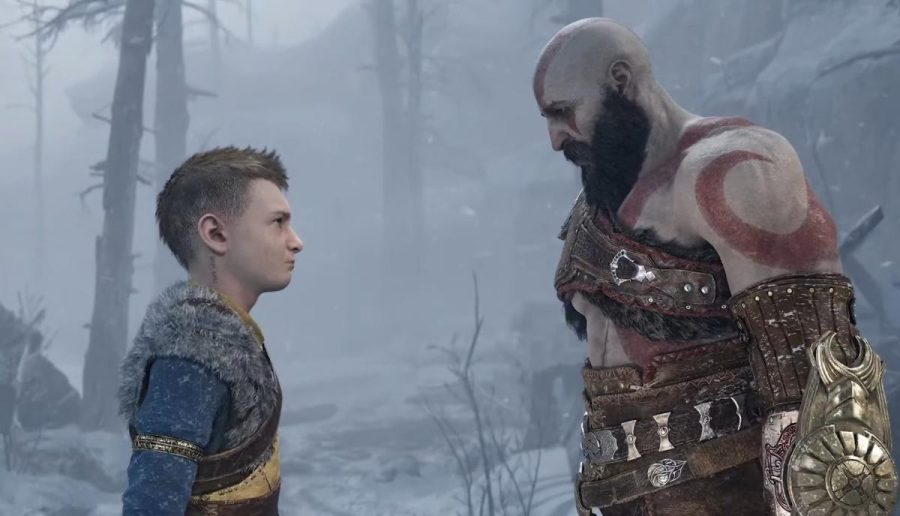
Having Kratos, a character known for his rage and destruction, grow as and want to change for the better is one of the best character arcs I have seen in any video game. Kratos isn’t the only character who gets an arc. Characters like Atreus, Freya, Mimir, Brok, Sindri and Thor all get meaningful, well-thought-out moments to shine and express their personalities. This is one of the most well-acted games I have ever played, as every actor nails their performance.
What stands out to me the most about this game is how entertaining it was the entire way through. “Ragnarök” is a long, narrative-driven game, and every time there was a hint of boredom, the game would reel me back in, either through the insane scenarios it puts you through or the emotional story that keeps your hands glued to the controller until its action-packed finale.
Ever since the release of “The Last of Us” in 2013, there have been new benchmarks in storytelling blockbusters. In 2016, it was “Uncharted 4: A Thief’s End,” and in 2018, it was “Red Dead Redemption 2.” Now, “God of War: Ragnarök” has set a new benchmark in not only having a fantastic story, but being very entertaining to play.
It’s a marvel how far video game technology has advanced over the years. “God of War: Ragnarök” may not have won my game of the year vote, but it won my vote as a new benchmark in entertainment and as a storytelling blockbuster. I give this game nine stars out of 10.

